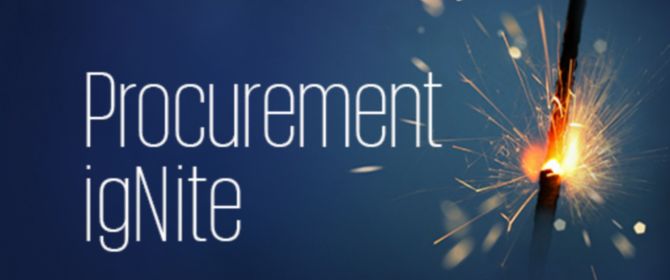Augmented Intelligence: What you should know
Augmented Intelligence: What you should know
How AI can help revolutionize procurement and maximize value.

Artificial intelligence (AI) and sophisticated machine learning algorithms are already working behind the scenes of many familiar technologies and applications. However, the potential of these cognitive technologies to make an impact in a B2B environment has yet to be fully realized.
Cognitive technology is a broad concept that combines many sophisticated analytic technologies, such as AI, machine learning, natural language processing, data-mining and pattern recognition. AI is a major enabler in this technology, as it simulates human decision making by analyzing data, generating hypotheses and evaluating evidence to make an “informed” decision. These technologies will augment natural human intelligence, and in turn, augmented intelligence can create an outcome greater than the sum of its part.
Forward looking procurement professionals can look into using cognitive technologies to improve business operations and achieve cost savings through better process efficiency. For example, deep machine learning can help to identify tail spend suppliers.
Murtaza Nulwala, Principal Consultant from Zycus suggests that AI can classify company specific categories and standardize this, and even recode items that were coded incorrectly. AI also adds the ability to narrow down the list of suppliers by recommending a supplier based on past purchases, as well as suggest contract alerts based on contract negotiation cycles. Over time, such technologies can adapt to different data models and constantly refine its algorithms.
According to Murtaza, another challenge for procurement professionals is getting insights from data gathered from different divisions. Instead of tasking someone to manually classify data, AI can help to analyze and streamline the data to be classified. This helps to create more opportunities for savings shorten reaction time, and reduce the chances for human error.
Cheong Yuk Wai, the CEO of a Microsoft independent software vendor, concurred. He sees the use of AI to classify spend as an enabler, helping procurement category managers to have better understanding and appreciation of the common types of spend. It also allows professionals to aggregate volume, and achieve cost savings in the process. Moreover, as the technology becomes more sophisticated, AI can even make recommendations to procurement officers during sourcing process, such as suggesting alternatives and maybe even better products out there.
Ian Chapman-Banks, SQREEM Technologies founder, observes that AI and machine learning are currently used for analyzing online data for anomalous, fraudulent behavior. The applications can also possibly be used by procurement as well. In fact, it is possible to use AI and machine learning to analyze and evaluate suppliers.
Ian believes that AI won’t replace, but instead renew jobs for procurement officers. With the help of AI, more jobs will be created and procurement professionals will play a more strategic role in the organization.
Yuk Wai’s assurance to the procurement professionals is that for now, augmented intelligence will see use cases in traditional spaces such as sales. While procurement is not at the forefront for applications of such technologies, it is gaining traction. AI will revolutionize procurement, albeit at a slower pace.
Procurement professionals need to start considering carefully how they can be prepared for this emerging technology. The quality of data will decide how successful its deployment will be.
